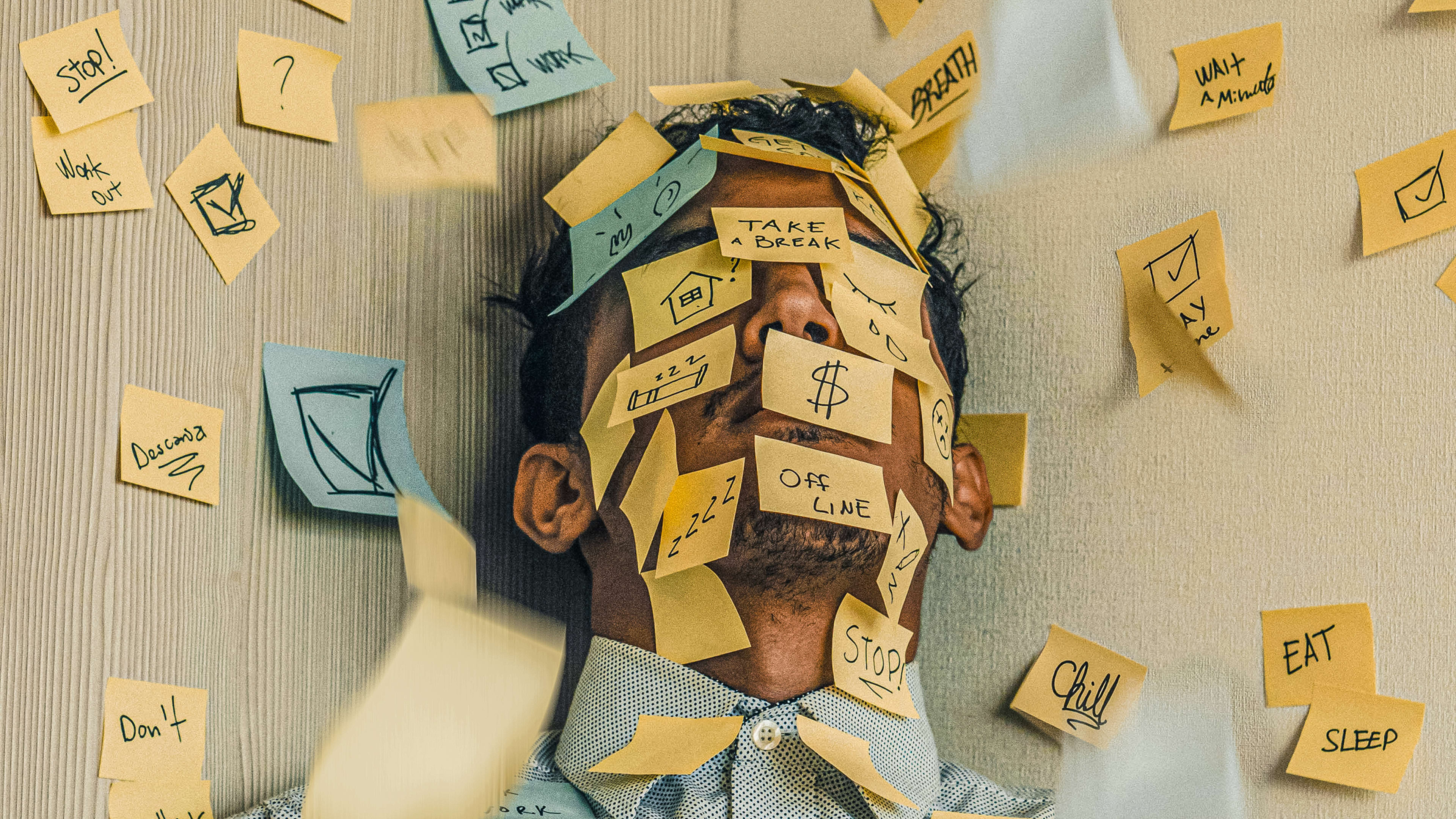The downsides of multitasking are well-documented. Doing—or trying to do—more than one thing at a time often opens the door to making mistakes. Tasks can take longer to complete because your brain must switch from one thing to the next, which requires a context shift. Studies have also found that heavy multitasking can cause short-term memory loss and even brain shrinkage.
While we can try to do more than one thing at a time, the human brain is built for mono- or single-tasking. Studies suggest that it’s good for your health and productivity, with benefits that include lower stress and reduced attention fatigue.
“Long before the invention of the word multitasking or the technologies that allow us to multitask, very wise people have been pointing to this idea that there’s something very profound about being willing to let life unfold sequentially,” says Oliver Burkeman, who recently wrote about monotasking for The New York Times. “It’s how deeply you accept the state of being a finite human, because in multitasking, there is that desire to feel like you’re more than that. To feel that you’re doing all the things at once and being all things to all people, and there is some kind of deep kind of non-acceptance of mortality. The notion of ‘do one thing at a time’ gets deeper the more you think about it and practice it.”
Here’s the thing, though: It’s not always easy, especially for a productivity junkie like me. Most of us think nothing of checking email while sitting in a meeting or making a to-do list while watching television. The problem is that it can hinder performance on both sides of the equation.
Doing One Thing at a Time
I decided to test drive monotasking for a week, and let’s say it was a bumpy road. I already enable the Focus setting on my phone and laptop during calls and Zoom meetings, so that I won’t be interrupted by texts or notifications. I also record interviews with Otter.ai or on my phone to focus on the conversation rather than worrying about getting accurate quotes. Beyond those two actions, though, I leave the door open for doubling up.
Right away, I didn’t realize how much multitasking I (try to) do during the day. For example, I quickly check social media if I’m struggling to write a story. I fold the laundry while watching television. I eat dinner while reading or watching a YouTube video. And I listen to podcasts while going for walks. These things seem harmless, right? But are they?
I found that simple tasks can deliver satisfying pleasures if you let them. For example, I ate breakfast without checking my email, mindfully tasting the spinach omelet I had prepared. I went for a walk without listening to a podcast and enjoyed the sound of chirping birds I couldn’t hear before because I was engrossed in an episode. I even focused on being in the shower, listening to the sound of the water, and smelling the scent of my shampoo instead of running through my day in my head.
But it wasn’t easy. My mind wants to go to what’s next instead of what’s now.
“It’s interesting how difficult is to do,” says Burkeman, author of Four Thousand Weeks: Time Management for Mortals. “Some people might allow the comfortable distraction of something else, taking your mind away from the thing you’re doing. There’s something unpleasant about being fully present. The discomfort of it is not really painful. I’m fascinated at how little discomfort it takes to stop me doing things that I thought I wanted to do.”
How It Felt to Monotask
A week of doing one thing at a time provided lessons I didn’t expect. First, I learned that I had been constantly living with an undercurrent of feeling rushed. It was as if a timer was running in the background, challenging me to work faster and get more done. This feeling often came when I embraced a distraction during my workday, like Wordle or Spelling Bee. I knew a deadline was more important, but I did it anyway. By moving these games to later in the afternoon when my work was done, I enjoyed them more.
I also realized that I had been mindlessly pouring another cup of coffee if I was focused on work. It often led to a headache or jittery feeling. By being cognizant of my consumption, I questioned whether I wanted coffee or water, avoiding the negative consequences that would impact my day.
By the end of the week, I felt calmer. I realized I wasn’t in a hurry and didn’t need to feel busy and productive all day.
Going forward, I’m striving for a happy medium, embracing multitasking for some things. I leave my earbuds at home two to three times a week when I go for a walk, tuning into nature instead of SmartLess. I run through my day in the shower because it helps me prepare. And I fold the laundry during the evening news because sorting socks is a welcome distraction in today’s world.
Monotasking comes down to consciously accepting the task you’re taking on, putting aside all the others, and seeing it through to completion, says Burkeman. “I’ve become more and more convinced that there is something very profound about being willing to fall in with the reality that you can only ever do one thing at a time, instead of struggling against it,” he says.
Recognize your brand’s excellence by applying to this year’s Brands That Matter Awards before the final deadline, June 7.
Sign up for Brands That Matter notifications here.
